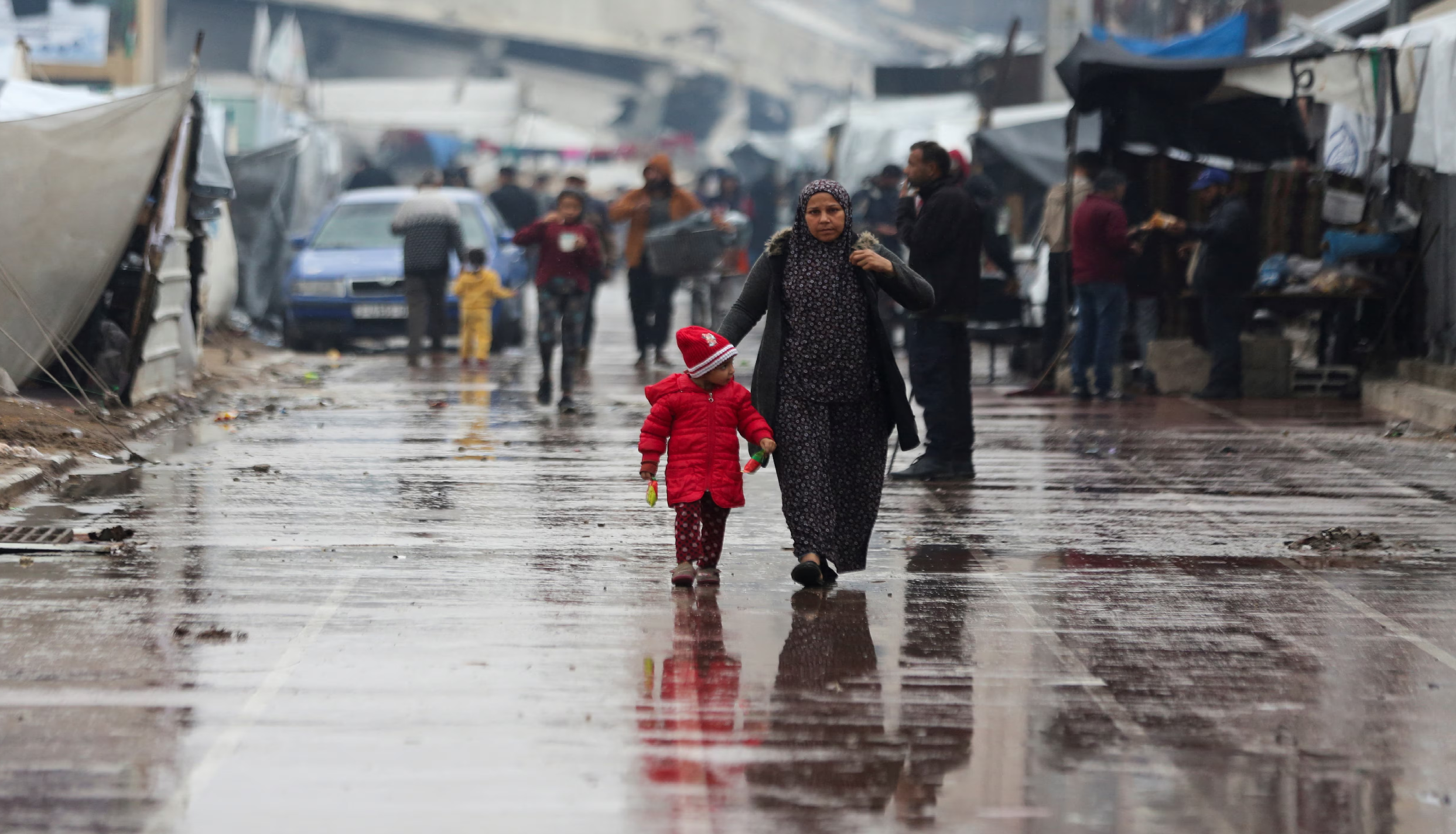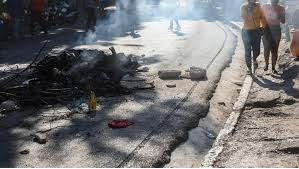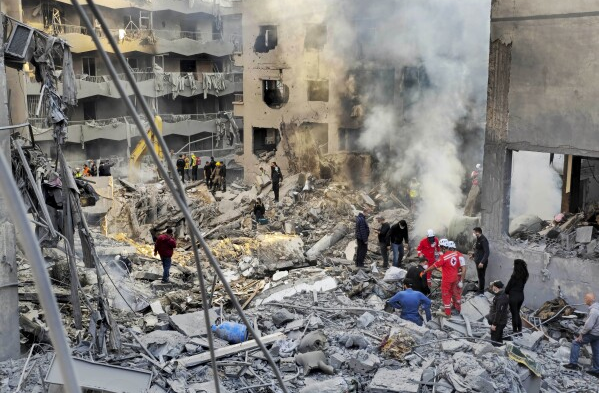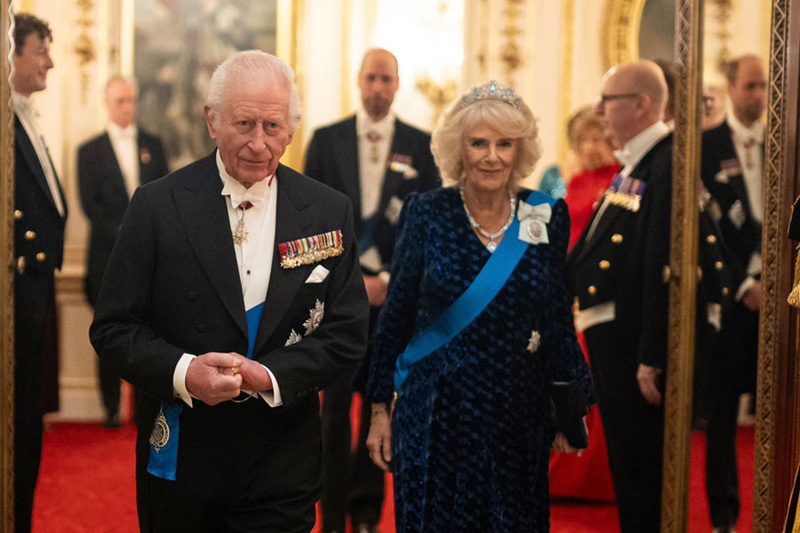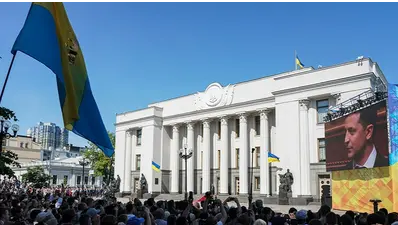
Israel intensifies huge attacks on Gaza, enforces 'total blockade'
NT Bureau, Agencies
Tel Aviv/Gaza: Even as the global community rushed to take sides in the ongoing Israel-Hamas conflict in West Asia, Israel's defence minister Yoav Gallant on Monday ordered a "complete siege" of the Hamas-ruled Gaza Strip, two days after shock attacks by the militant group killed more than 700 Israelis, including soldiers.
"I have given an order - Gaza will be under complete siege. There will be no electricity, food or fuel [delivered to Gaza]," Gallant said.
Gaza depends on Israel largely for its basic supplies and such a decision will have far-reaching consequences for 2.3 million people living in the densely populated area.
While Hamas activists looked celebrating on the streets of the coastal territory on Saturday, wary commoners were seen looking to stock up on basic needs speculating about the imminent harsh attack.
The streets of Gaza for the last two days have looked completely deserted, much like most Israeli towns in the south.
The "complete siege" of the coastal Strip comes amid unabated air strikes being carried out by Israel in which, according to Gaza's Health Ministry, 560 Palestinians have been killed so far and 2,900 wounded.
The spokesperson for Hamas's Izz ad-Din alQassam Brigades, going by the nom de guerre Abu Obeida, claimed that Israel's bombing in the Gaza Strip has killed four Israeli hostages.
More than 100 Israelis, old, young and children have been taken captive by Hamas and Islamic Jihad in the attack which started on Saturday. Israel witnessed a surprise and unprecedented attack by Hamas, which rules the Gaza Strip, in its southern parts on Saturday morning.
After more than 50 hours of firefight, the Israeli army claimed that it has regained control of all Gaza border towns, but said that some militants who infiltrated may be remaining around.
Turning point in conflict, says analyst
Dr Maher Awawedeh, a West Bankbased analyst, described the Hamas attack as a "turning point" in the Israeli-Palestinian conflict and said the multifront assault shocked everyone by its strength, size, scope, and achievements.
"We saw how the Israeli image, projecting itself as a superpower that sells intelligence and warfare, collapsed before a group of Palestinians, less than 1000 in number," he told PTI.
He blamed Israel for provoking Palestinians by entering Al-Aqsa mosque in Jerusalem, preventing them from praying.
"That was the spark that ignited what happened after 17 years of siege of Gaza," he said.
"We saw Germany, France and the US expressing support for Israel. Israel has the right to defend itself but it doesn't have the right to defend its occupation," he added.
WESTERN LEADERS ACCUSED OF HYPOCRISY OVER RESPONSE TO PALESTINE, UKRAINE WARS
Critics on social media have pointed out what they perceive as a double standard in international reactions to different conflicts.
While most global leaders support Ukraine's right to defend itself and condemn Russia's invasion, some argue that a similar level of support is not extended to the situation involving Israel's occupation of the West Bank and Gaza.
Aaron Bastani, a British leftist jour nalist, expressed this view by highlighting a "clear double standard" in how terrorism against civilian targets in Ukraine is endorsed, while similar actions by Palestinians are condemned.
Many social media users have criticized Western diplomats and media for portraying Ukrainians defending their land as heroes while labeling Palestinians fighting against Israel as "terrorists."
Social media clips also circulated featuring Mustafa Barghouti, general secretary of Palestinian National Initiative, who posed a question during a CNN interview: "Why does the US support Ukraine in fighting occupation, while here they support the occupier?"
This is not the first instance where Western nations have faced accusations of double standards regarding their stance on the Ukraine conflict. Earlier in the year, Amnesty International published a report that highlighted what it referred to as "double standards" in the West's approach to global human rights.
Agnes Callamard, Amnesty's secretary-general, emphasized the importance of the Palestinian issue, stating that the Palestinians were living under a regime of oppression, occupation, and apartheid, without drawing a direct comparison to Russia's actions in Ukraine where a war is on for a year.
 English daily published in Bengaluru & Doha
English daily published in Bengaluru & Doha

